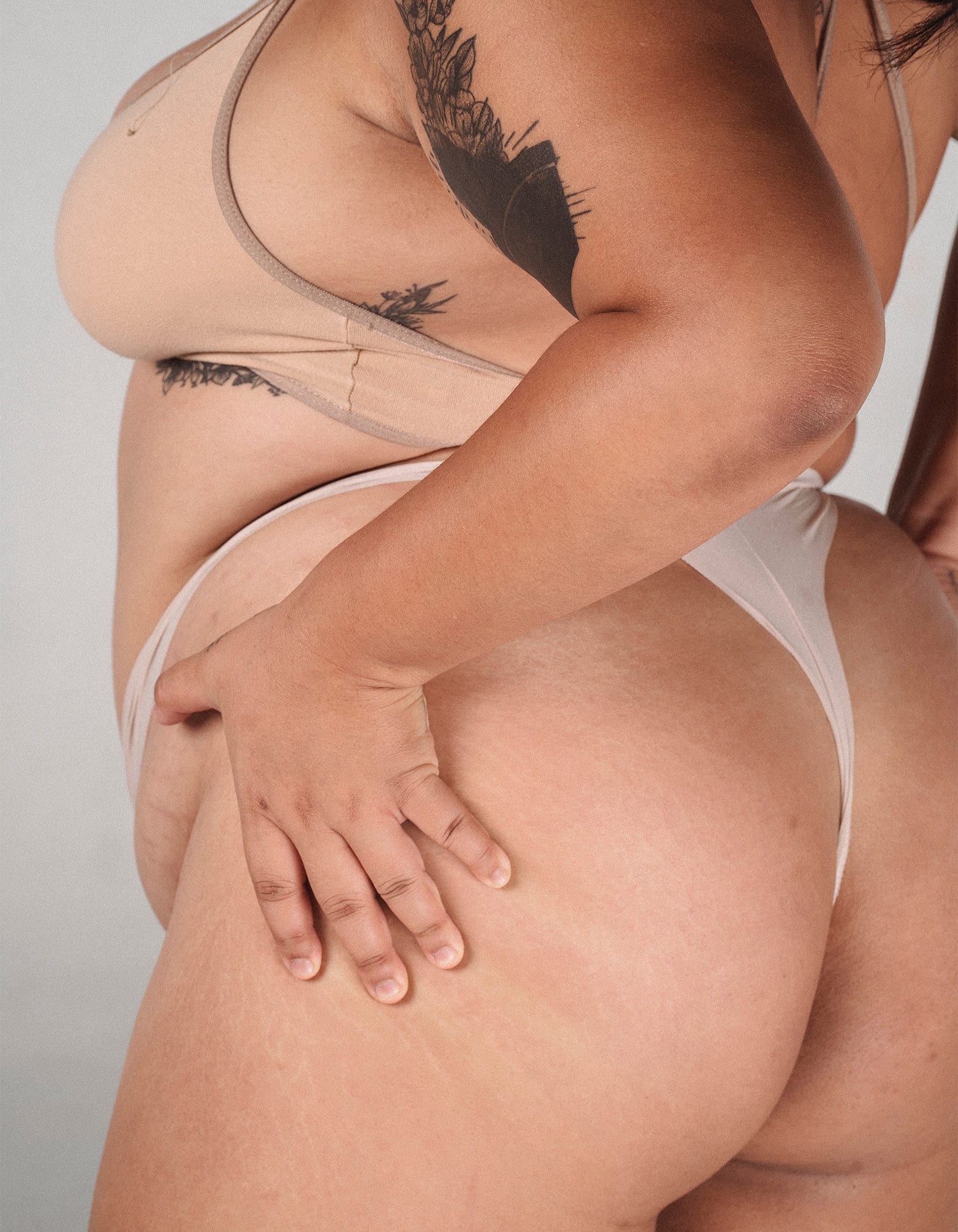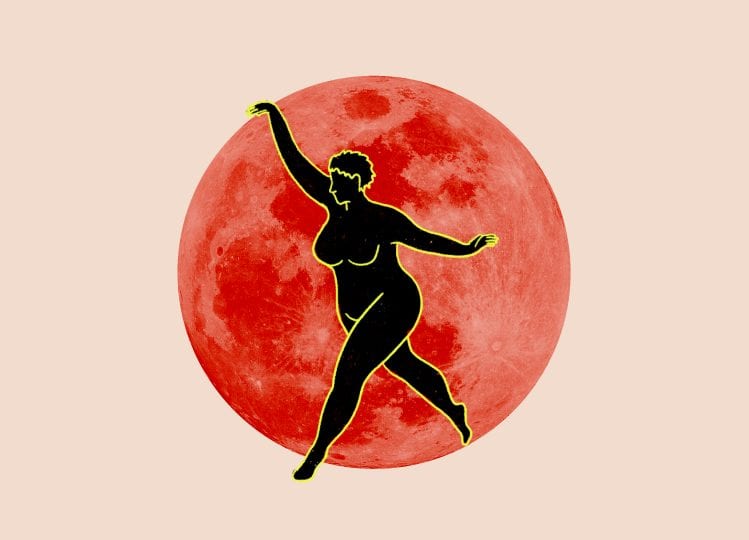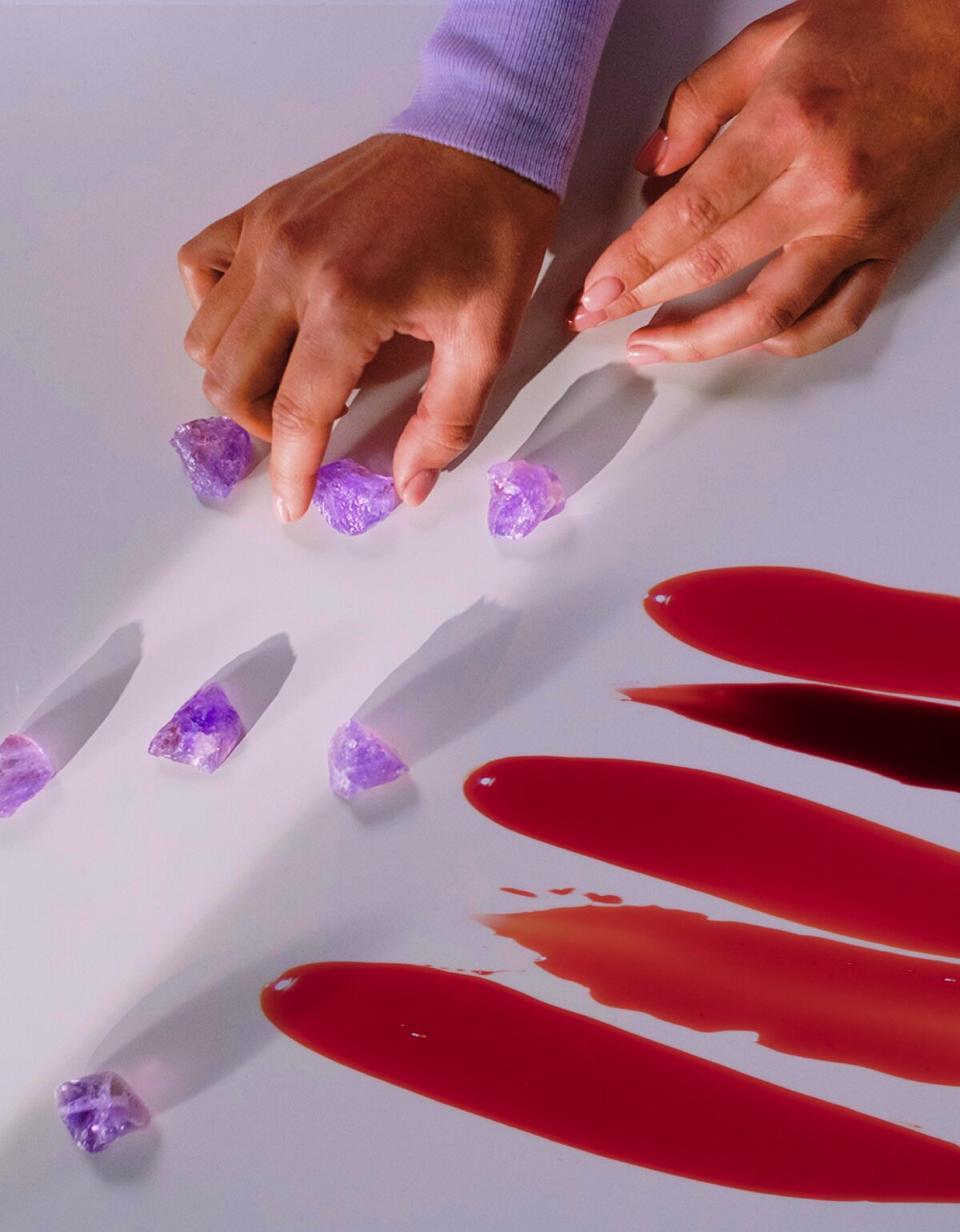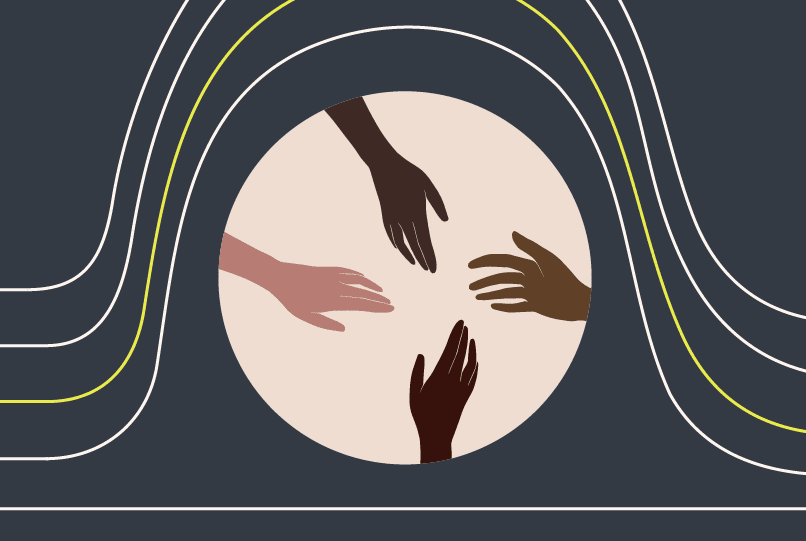Periods & body dysmorphic disorder: How PMS impacts BDD
The truth is that most of us can pinpoint a thing or two we don’t like about our physical appearance. Whether it’s a crooked tooth or the size of our waist, almost everyone has a personal detail or part of the body they dislike or would like to change.
These perceived flaws don’t often interrupt our day-to-day flow, and most of us don’t dwell on these imperfections when we hang out with friends, scroll through our Instagram feed, or type emails to our co-workers. But for those with body dysmorphic disorder, a.k.a. BDD, it’s a totally different situation.
What is body dysmorphia?
According to the Anxiety and Depression Association of America, body dysmorphic disorder “is a body image disorder characterized by persistent and interruptive preoccupations with an imagined or slight defect in one’s appearance.” 1
In short, it’s a mental disorder where you literally can’t stop thinking about the physical flaws you notice in your appearance, and it can be highly disruptive to your daily functioning and to your social life.
Symptoms of BDD range from intense feelings of shame to constant mirror checking. BDD symptoms can present themselves differently in each person who experiences it. Some people may become obsessed with one specific feature or common areas of concern such as their nose or skin, while others may focus on multiple areas, or even with their entire body. Regardless of the specific body part obsessions, individuals with BDD often engage in compulsive and repetitive behaviors in an attempt to alleviate their distress.

Maybe you find yourself avoiding social situations, work, or school when your feelings are overwhelming. Perhaps you turn to cosmetic surgery or procedures to “fix” those parts of your body. Maybe you go to therapy twice a week and keep a journal for your negative thoughts.
However you handle your BDD, take comfort in knowing that many people are going through something similar and are also looking for ways to cope. In fact, Body Dysomorphic Disorder affects nearly 1.7 – 2.9% of people in the United States alone.2 That’s anywhere between 5-10 million people!
How does BDD relate to your period & menstrual cycle?
Just like how sore boobs and junk food cravings can get intense during your period, BDD can be exacerbated by your cycle. The feeling of dissatisfaction with your looks or obsession over something physical can rear its head when the hormonal volume is turned up, and a disorder that normally feels manageable may feel much heavier.
While the causes of BDD are not fully understood, research has shown a potential link between hormonal fluctuations and the severity of symptoms. In particular, studies have suggested that the hormonal changes experienced during PMS can intensify body dysmorphic disorder.
During the premenstrual phase, many individuals experience severe symptoms of BBD due to physical and emotional changes due to hormonal shifts.
For people with BDD, the emotional rollercoaster caused by a period can trigger their disorder and cause them to feel an even more heightened sense of stress – thanks to things like temporary weight gain and hormonal acne.

How can I prepare for my period if I have Body Dysmorphic Disorder (BDD)?
We are not licensed clinicians, nor are we experts in the BDD subject area. What we can recommend comes from reading journals, scouring the Internet and speaking with friends who’ve faced PMS + BDD challenges before. Below are some solutions that work for them during this complicated time of the month.
Be open about what you’re experiencing.
Like with many things, keeping your feelings or personal experiences bottled up isn’t good and doesn’t help you feel any better.
If BDD is something that’s heightened because of your period, open up about it with a friend, a trusted ally, or a therapist. An outside perspective might give you some distance on your thoughts and help you get through this time. Remember that it takes guts to be vulnerable.
Focus on a recovery mindset in eating and exercise habits.
When a period begins, many of us struggle to navigate our eating habits and exercise regime. We tend to overdo it, to commit to eating only healthy foods and subscribe to exercising goals that aren’t attainable.
For those with BDD, this can be even more challenging, and compulsive exercising and dangerous eating habits could rear their heads (e.g. controlling caloric intake).
If you have BDD and get your period, it’s important to try and not let it influence what you eat and how much you exercise. Instead, focus on intuitive eating, listening to your body, and sticking to your recovery plan (if you have one).3
Talk to your healthcare provider.
If your period is triggering your BDD or it feels way more intense than normal, a convo with your health care provider could open up some doors for you. Hormonal birth control is a known way to regulate your cycle and could help stunt some of the symptoms you’ve been experiencing.
Feel the feels.
No magic potion will solve this issue overnight and no blog post that’s going to make you feel cured. Give yourself space to feel how you feel and don’t judge yourself for feeling that way.
If left untreated, body dysmorphic disorder can significantly impact a person’s quality of life. The persistent negative thoughts and preoccupation with perceived flaws can lead to significant distress, social phobia isolation, and other related conditions such as compulsive behaviors. It can also contribute to other mental health conditions like eating disorders, obsessive compulsive disorder (OCD), major depression, and social anxiety disorders. It is essential to seek professional help if you suspect you or someone you know may be struggling with BDD.

How is body dysmorphic disorder diagnosed and treated?
BDD is diagnosed through a thorough evaluation by a mental health professional. Treatment options may include cognitive behavioral therapy (CBT), Exposure and Response Prevention (ERP), medication like Selective Serotonin Reuptake Inhibitors (SSRI), or a combination of both. Consult your healthcare provider for an accurate diagnosis and personalized effective treatment plan.
Have BDD? We want to hear about your experience
Our community is stronger when we share our voices and stories. If you’re working through your BDD or have experienced it in the past, particularly in conjunction with your period, we’d love to hear more about it. We want your point of view.
To share your story, email us at thefornix@flexfits.com
Additional resources:
This article is informational only and is not offered as medical advice, nor does it substitute for a consultation with your physician. If you have any gynecological/medical concerns or conditions, please consult your physician.
© 2024 The Flex Company. All Rights Reserved.
- Anxiety and Depression Association of America. (n.d.). Body dysmorphic disorder (BDD). https://adaa.org/understanding-anxiety/related-illnesses/other-related-conditions/body-dysmorphic-disorder-bdd[↩]
- Phillips, K. (2019, January 10). Prevalence of BDD. International OCD Foundation. https://bdd.iocdf.org/professionals/prevalence/[↩]
- Corazza, O., Simonato, P., Demetrovics, Z., Mooney, R., Van de Ven, K., Roman-Urrestarazu, A., Rácmolnár, L., De Luca, I., Cinosi, E., Santacroce, R., Marini, M., Wellsted, D., Sullivan, K., Bersani, G., & Martinotti, G. (2019). The emergence of exercise addiction, body dysmorphic disorder, and other image-related psychopathological correlates in fitness settings: A cross sectional study. PLOS ONE, 14(4), e0213060. https://doi.org/10.1371/journal.pone.0213060[↩]















